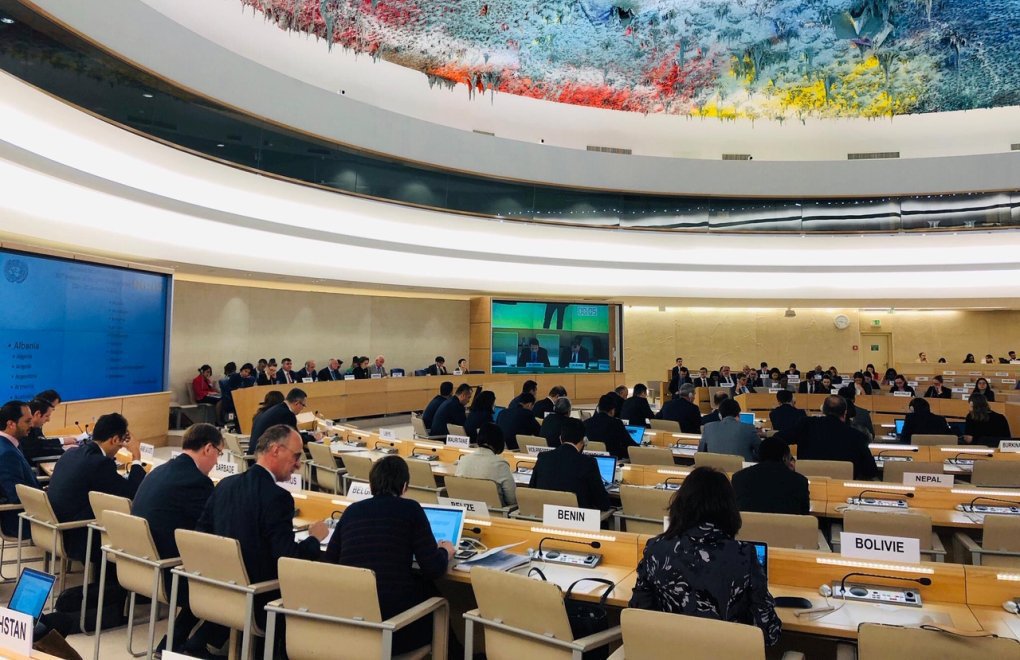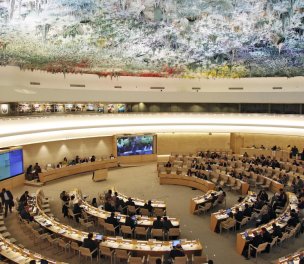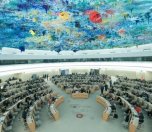Photo: www.ohchr.org
Click to read the article in Turkish
The 35th session of the Universal Periodic Review (UPR), where the situation of human rights in 193 United Nations (UN) member countries are reviewed every five years, has been completed at the UN Human Rights Council in Geneva.
Making a presentation in the name of Turkey's delegation, Ambassador Faruk Kaymakçı, the Deputy Minister of Foreign Affairs and the Director of European Union Affairs, summarized the "difficult period regarding the coup attempt on July 15, 2016, and the struggle against numerous illegal organizations."
Kaymakçı stated that Turkey adheres to the values of the Council of Europe, the First Judicial Reform Package has been put into effect to improve freedom of expression and the press, and Turkey's efforts regarding basic freedoms will continue with the Human Rights Action Plan, which is expected to be run until 2023.
The 'government side' of the medallion
Kaynakçı said that with the First Judiciary Package, which was put into effect in late October, many cases regarding freedom of thought can be brought to the Court of Cassation and a maximum remand period was determined both for the phases of investigation and prosecution. As for criticisms about legal pressure on journalists, he told the council that "the laws do not grant the privilege of committing an offense to anyone, including journalists."
The national report Turkey submitted to the UN prior to the UPR also stated that "Freedom of expression and the media are safeguarded by the Constitution and other relevant legislation. There is an active and pluralistic media community enjoying international standards of freedom of expression and media in Turkey." https://undocs.org/en/A/HRC/WG.6/35/TUR/1
'Law and freedom of expression'
However, the pressure on media representatives and rights defenders were mentioned in the recommendations by more than 50 countries, including Germany, Canada, France, Sweden, Norway, Iceland, Bulgaria, Denmark, Estonia, Finland, Morocco. They made criticism and recommendations about the separation of powers, independence of the judiciary, rights of journalists becoming effective in accordance with the European Convention on Human Rights.
At least 20 countries conveyed messages that were directly about freedom of the press, such as the arbitrary arrest of journalists, attacks on media representatives and impunity, online and offline censorship.
Numerous countries, including the US and Sweden, asked Turkey to not use Article 7 of the Anti-Terror Law as an instrument of oppression. Uruguay and Armenia asked for the abolishment of Article 301 of the Turkish Penal Code, which makes it illegal to "insult the state institutions and the Turkish nation," which Turkey keeps in effect despite a European Court of Human Rights (ECtHR) judgment on historian Taner Akçam.
Slovenia mentioned Article 299 of the Turkish Penal Code on "insulting the President" and Sweden brought up Article 125 of the Turkish Penal Code, which envisages prison sentence for "insult."
According to the BİA Media Monitoring Reports, at least 61 journalists have been given prison sentences, deferred prison sentences or judicial fines in the lawsuits filed as per Article 299 of the Turkish Penal Code since August 2014, when Recep Tayyip Erdoğan was elected President. The Constitutional Court ruled last year that Article 299 being included in the legislation does not violate the Constitution.
Criticism from Mexico about freedom of the press
One of the most interesting moments of the event was that Mexico, the country where the highest number of journalists were killed and where drug traffickers and mafia targets journalists, drew attention to violations of media freedom in Turkey.
Eight journalism and freedom of expression organizations (RSF, Article 19, PEN International, PEN Norway, IPI, Pen Britain, Freemuse, European Centre for Press and Media Freedom [ECPMF] and IFEX) submitted a report to the UN regarding the UPR of Turkey.(EÖ/AS/VK)












